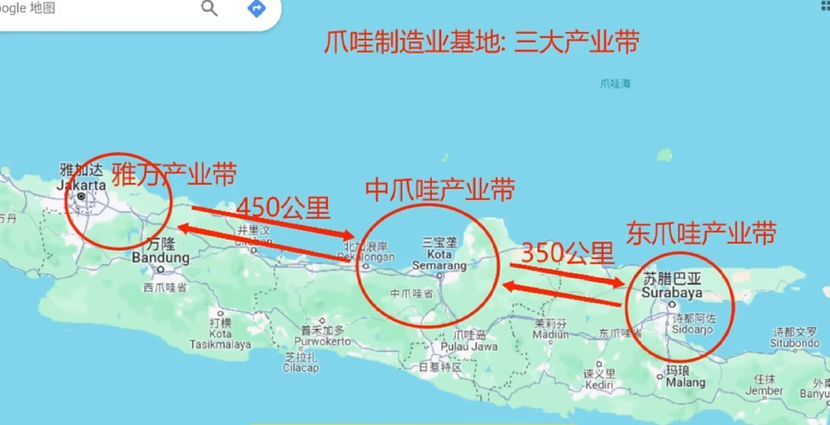Indonesia plans four new special economic zones

The establishment of Special Economic Zones (SEZs) is an important initiative for Indonesia's economic development.The Acting Secretary General of the Indonesian Special Economic Zones Commission (SEZC) recently said that Indonesia will soon add four more special economic zones with a total investment of Rp 161 trillion.The four new SEZs are located in four provinces, with two SEZs in Batam, Riau Islands province, which will specialize in logistics, energy development and health tourism, the South Tangerang SEZ in Banten province, which will focus on the digital economy, education, health and creative industries, among others, and the one in Morowali, Central Sulawesi province, which will be engaged in logistics and energy production and processing industries.Plans for the establishment of four Special Economic Zones (SEZs) have been vetted but require presidential approval before they can be formally included in the list of special zones to be developed by the Government. In addition, the government has received proposals for seven special economic zones, located in Java, Sulawesi and East Kalimantan. Of these, the Nusantara SEZ in East Kalimantan will provide energy for the new capital and serve as a showcase for mining activities, and there is high investor demand for these seven proposed SEZs.On July 26, President Joko inaugurated the Batang Integrated Industrial Zone in Central Java. The industrial zone, to be built in 2020, is planned to cover an area of about 4,300 hectares and create about 250,000 jobs. The first phase covers an area of 400 hectares and has already been occupied by 18 companies with an investment of Rp 14 trillion, attracting a labor force of about 19,000 people. A special economic zone will be created here, said Luhut, the Coordinating Minister for Maritime Affairs and Investment. Indonesia first began developing special economic zones in 2009 when it passed the Law on Special Economic Zones. According to the law, designated areas subject to unique economic regulations should aim to create more equal economic development among regions. Indonesia's first SEZ, located in Tanjung Lesung, Banten Province, was launched in 2012. Currently, there are 22 Special Economic Zones (SEZs) across Indonesia, focusing on the industrial, tourism and digital sectors. The Indonesian government provides a series of incentives and measures for SEZs. According to the report, investors with a minimum investment of Rp 1 trillion will receive a 20-year corporate income tax exemption, companies with an investment of no less than Rp 500 billion will receive a 15-year corporate income tax exemption, and investors with an investment of Rp 100 billion will receive a 10-year corporate income tax exemption. Other fiscal incentives in SEZs include tax holidays, tax credits, VAT exemption, luxury sales tax exemption and regional tax exemption.
On the non-financial side, initiatives including government assistance will facilitate SEZ investors. Examples include building tenure up to 80 years, relaxed entry permits, and foreign ownership up to 1001 TP3T. Previously, not all businesses allowed foreign investors to have 100% ownership. Sectors where foreigners can have sole ownership include oil and gas construction services, offshore oil and gas drilling, geothermal drilling, timber industry and internet service providers. In addition, the government is optimizing the One Map Policy to accelerate the development of special economic zones and national strategic projects.2023 In February 2023, the Geospatial Information Agency (GIA), under the authority of a presidential decree, issued access classifications and mechanisms for sharing geospatial information, particularly with regard to public access rights. Previously, the data and information were closed and no public access was provided. The head of the Indonesian Geospatial Information Agency (BGI) stated that the data they currently collect is categorized into 151 topics, which is important for data certainty, and users can access geospatial information on their goals and topics of interest as needed. Indonesia will continue its efforts to encourage economic transformation, including accelerating economic growth through the development of special economic zones and realizing the Golden Indonesia Vision 2045. "Policies such as Special Economic Zones (SEZs) can accelerate development, which is crucial for the economic growth of our country," said newly elected President Prabowo at the launch of One Map 2.0. The Minister of Economic Coordination also said that SEZs have a positive impact on the regional economy, targeting globally competitive industries, international standard tourism services, education and health services, and the digital economy. Overall, most of the SEZs have developed well and contributed positively to economic development, including helping to improve regional economies and eliminate regional disparities, as well as maximizing industrial activities and encouraging the import and export of high-economic-value goods and services. From 2012 to the end of June this year, investment realization in SEZs has reached Rp 205.2 trillion, employing more than 130,000 workers.In the first half of 2024, investment in SEZs reached Rp 31.4 trillion, accounting for 40% of this year's target of Rp 78.1 trillion.During the same period, SEZs attracted 15,229 employment, accounting for 39% of the target of 38,953 people. of 39%.

